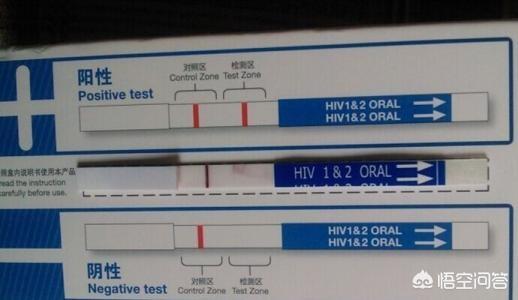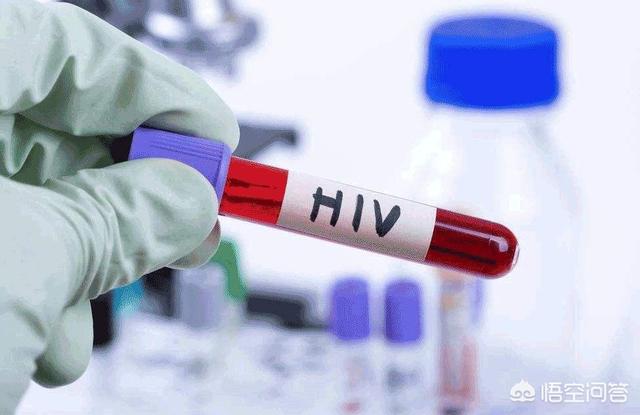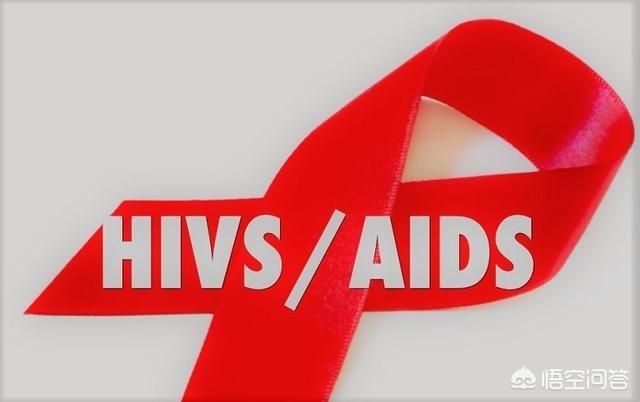Is it still necessary to go to the hospital when you learn that you have AIDS?
- Is it still necessary to go to the hospital for treatment when I learn that I am infected with AIDS? This question is asked as if one is going to die immediately from AIDS, it is so desperate!
It can be seen thatHow false rumors and pessimistic societal discourse about AIDS can destroy some otherwise sound minds.
No doubt about it.This kind of thinking stems from ignorance. Ignorance is on the one hand the adoption of high-risk behaviors without the awareness of self-protection, unprotected high-risk behaviors some high-risk behaviors, and on the other hand theSelf-suggestion, judgment, and driving yourself into despair by searching online.
It's no wonder, though. Perhaps, after learning that you have AIDS.with the horrible sight of death filling his head, and the feeling that the days were numbered, or that a long agony awaited him.There are also social and psychological influences, fear of social isolation and abandonment, and so on and so forth!
None of this is right!
Next, Dr. Long started withHow to face this matter correctly from the perspective of clinical practice in seeing HIV-infected patients?It would be beneficial to listen carefully.
1. AIDS is no longer a terminal disease
A so-called terminal illness is one in which the progress of the disease cannot be controlled by any means, and will lead rapidly to death within a limited period of time. In this sense AIDS is certainly not a terminal illness. Numerous examples tell people that through active antiretroviral treatment, regular checkups, and maintaining a good lifestyle, it is possible to live like an ordinary person, and even have the same life expectancy as other people.
2. Treatment of AIDS
Currently, anti-AIDS poisons areNationwide free of charge, there will be no additional financial burden in this regard, and don't believe some people on the internet who say that free medication doesn't work.
3. Go to the hospital as soon as possible
It is currently detected, and since the question of whether or not to go to the hospital means that you have not yet been to the hospital for a general health checkup as soon as possible. The purpose of the examination.It is to detect some opportunistic infections and tumors. The tests that need to be done include blood tests, biochemistry, chest X-ray, tuberculosis tests, hepatitis B, hepatitis C, syphilis antibody tests and so on.Then, depending on the test, a decision will be made whether to take antivirals immediately or treat some opportunistic infections first.
4. The optimistic side
It is already a reality that you need to take medication for the rest of your life if you have AIDS, and on the basis of accepting the reality, you should try to think of something that is favorable to you. For example, compared with other people who do not like to do health checkups, people infected with HIV will have more chances to do regular checkups. Regular medical checkups can reveal problems that are usually overlooked and can be prevented and treated in time. This is a benefit that comes with free treatment, and regular health checkups are more conducive to longevity.
5. Recent developments on AIDS
For HIV-infected people who are not married or who have not had children, through antiretroviral therapy.Keep the virus consistently at undetectable levels and there is even hope for marriage and childbirth!In January 2019, the prestigious journal JAMA published an article thatRecognize the pioneering "U=U" concept that undetectable virus equals non-infectious.That is to say, people with HIV who are well-treated will not infect their spouses through sexual transmission, which gives a theoretical basis for living, which gives a theoretical basis for having a healthy next generation.
6. Psychological adjustment is the key
Many people do not pay attention to the psychological adjustment, a pessimistic and disappointing, or all day long to hang out on the Internet, drowning in some pessimistic statements. This practice will change a person's psychological state, so that people lose the courage to live a positive life. So.While accepting the reality of the situation, you also accept the advice of some reliable doctors to actively treat the problem, not to be gullible, not to follow blindly, and to be yourself.
Having AIDS is like God covering up a window in the house you live in, it doesn't change your abilities and it doesn't stop you from moving on and continuing to be a good person.

Science and technology is the most heartfelt and reliable Dr. Long! Welcome to leave a message, discuss, like, retweet and follow!
Is it still necessary to go to the hospital when you have AIDS?

If it is in the eighties and before, before the discovery of HIV and AIDS antiviral drugs may not need to go to the hospital, because in the past there is no special treatment, at most, symptomatic treatment, some of the patients unexplained deaths, however, to today AIDS is not a difficult disease, there are a lot of treatments, so the current AIDS in the end, what exactly some of the treatments needed?
In general, there are two areas: antiviral therapy and treatment of opportunistic infections; and
1. Antiretroviral therapy, when a patient is diagnosed with AIDS, he/she needs to be registered with his/her AIDS management department, enrolled in the network, and his/her information verified, etc., and then he/she will be given free national medication, which is antiretroviral therapy, but of course, if he/she doesn't go to the healthcare department to be diagnosed, he/she will not be able to get antiretroviral therapy.
2. Treatment of opportunistic infections; HIV-infected persons have difficulty fighting infectious diseases and malignant tumors due to a low-functioning immune system, which are called "opportunistic infections" because they take advantage of the opportunities provided by a weak immune system.
-protozoal diseases such as Pneumocystis carinii pneumonia (PCP), toxoplasmosis, microsporidiosis, cryptosporidiosis, psoriasis and leishmaniasis.
-Fungal diseases such as Candidiasis, Cryptococcosis and Penicillium marneffei.
-Viral diseases caused by cytomegalovirus, herpes simplex, herpes zoster, etc.; and
-HIV-related tumors such as Kaposi's sarcoma, lymphoma, and flat cell carcinoma.
It is important to go to a hospital when an opportunistic infection develops and contact a doctor for appropriate treatment of opportunistic infections, but of course opportunistic infections do not occur in every person with AIDS.Patients who are detected early and treated with antiviral therapy tend to have fewer opportunistic infections.

So, when diagnosed with AIDS it is not without a chance of treatment, the earlier the treatment the better, and AIDS is now a chronic disease.
I hope this helps! Follow Dr. Li Ping for health!
AIDS is an infectious disease that is mainly transmitted through blood. The cause of the disease is due to infection with the HIV virus, which, after invading the body, gradually destroys the body's immune system, causing the body's resistance to drop drastically, thus gaining the opportunity to be infected.

AIDS itself is not fatal; it is the complications that are fatal. Because the body's immune system cannot be activated or disabled after acquiring opportunistic infections, these infections cannot be cleared up, medication is less effective, and thus the infections become more and more severe and eventually reach the point of being uncontrollable, which can ultimately lead to multiple organ failure and death.
However, from a medical professional point of view, being infected with HIV is not necessarily AIDS.HIV infection is characterized by the following phases: transmission of the virus, acute infection phase, and chronic infection phase. The chronic infection period is subdivided into the chronic infection non-AIDS period and the chronic infection AIDS period.

So, it is not the case that having symptoms or finding out that you are HIV positive is AIDS. To be precise.AIDS should be defined as being HIV-positive, belonging to the chronic phase of infection, and accompanied by a decline in CD4-positive cells.
Therefore, if it is AIDS, then there should be significant complications at this point, and the diagnosis should have been confirmed at the CDC. It is not time to get medication from the CDC, but rather to go to a specialized hospital, usually a hospital for infectious diseases, for comprehensive treatment, which is not only necessary, but essential.
This is a question that I have encountered a lot in the course of my work, so let me share my views on it.

AIDS, or Acquired Immune Deficiency Syndrome, is caused by HIV infection, with an average incubation period of 2-10 years and eventual death from various opportunistic infections or tumors.
In the past, due to the limited treatment and medication available for AIDS, AIDS was considered a terminal disease, and many people became very desperate when they found out that they were infected with AIDS and had to wait for death. However, nowadays, the research on AIDS is getting more and more in-depth, and the results are also increasing. AIDS has become a chronic disease that can be prevented, controlled and cured, and as long as we adhere to the treatment, it will almost never affect our life expectancy.Therefore, if you are infected with HIV, you must be treated, and the sooner you are treated, the better!Recent studies have shown that the earlier treatment is given, the better it is for protecting CD4T cells and for remodeling immune system function!
So what should you do if you find out you have HIV? You should first contact your local CDC and go to your local CDC to set up a file, which will facilitate later medical checkups and follow-up visits, and never give up on yourself!
You need to build up confidence, now AIDS has really become a chronic disease that is preventable, controllable and curable, believe it or not, this is the fact, many people may think that the drugs used for treatment will have liver and kidney toxicity, and will lead to necrosis of the liver and kidneys, I don't deny that the drugs used for treatment will have liver and kidney toxicity, however, if there is any resistance to the drugs or intolerance of the body, you can apply for a change of the second line of drugs, which are free of charge, and the drugs will not cause any damage to the liver or kidneys. So don't worry. Think about it another way, this is at least better than some cancers, right? So why not treat it? One must go for treatment!
I am in the CDC to do AIDS prevention and treatment work, if you have questions about AIDS-related issues, you can follow the private message advice, thank you!
It's necessary, but instead of a hospital, you go first to the CDC, the Centers for Disease Control.
There is actually no discrimination against HIV carriers at the national level, but rather there are many policies and regulations, such as the four exemptions and one care and free counselors, as well as the ability to find HIV mutual aid organizations.
CDC has free anti-viral medication every month, so that you can greatly continue your health, and even do exactly what a normal person would do, with some solace in mind and body, with the goal of living better and not endangering other people as well.
HIV has been able to see hope for a cure thanks to the efforts of the world, and may see that day in ten or twenty years.
Therefore, if you are just infected with HIV, CDC and some mutual aid organizations are better, while once the disease has developed into AIDS, you have to go to the hospital, preferably to a professional infectious disease hospital, which can effectively alleviate the pain a little bit.
Hello!
It is very necessary to go to the hospital in time for treatment.
Don't give up the chance of treatment. Although you have been infected with HIV, you have not yet developed the disease, you can go to the designated epidemic prevention department to seek medical treatment because the government now provides drug substitution therapy to patients. As long as you go to the designated place to collect the drugs every day, you can inhibit the replication of the virus in your body, and you can live and work as usual. By going to the designated place for regular check-ups every three months, it is possible to prolong life completely.



HIV carriers and not a terminal disease, there is no need to panic, to cooperate with the doctor active treatment, can become a chronic disease. Now there are many HIV-infected people, the country and the world recognized as a chronic disease, there should be no impact on life!
AIDS is not a scary disease, but with the care provided by the state, AIDS medication is free, and the sooner you get treatment, the more secure your life is, and it's recognized as a chronic disease, and with treatment, you can still have healthy children, so, as the heavens have closed a door, the earth has opened a window, so cherish it, and you'll be able to live with it.
Ni Haixia says it's a yangming disease, a deathless disease. It can be cured. Provided it hasn't been treated by western medicine. It seems to say so. There are videos online, you do need them, you can check them out.
AIDS is almost terminal as is cancer, which is treated in hospitals. Think differently seek treatment from a folk doctor. Because the disease is a weak cell, the one who can strengthen the cell is the right treatment.
This question and answer are from the site users, does not represent the position of the site, such as infringement, please contact the administrator to delete.